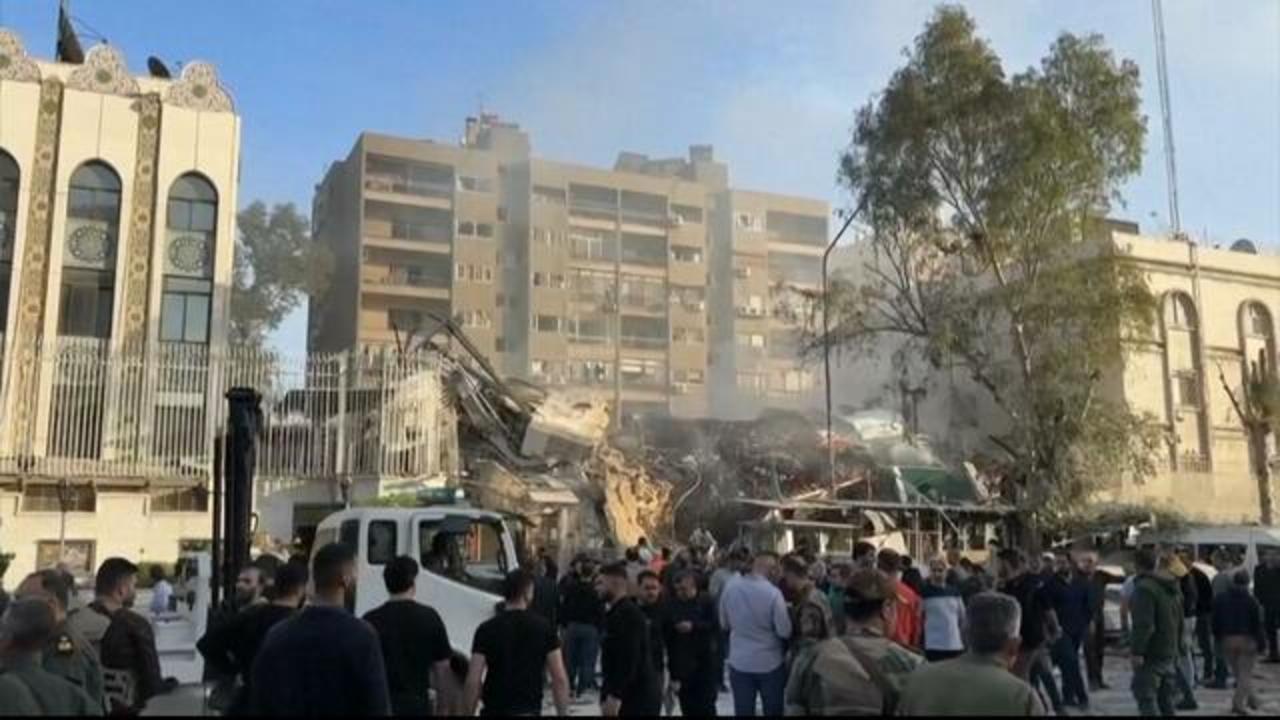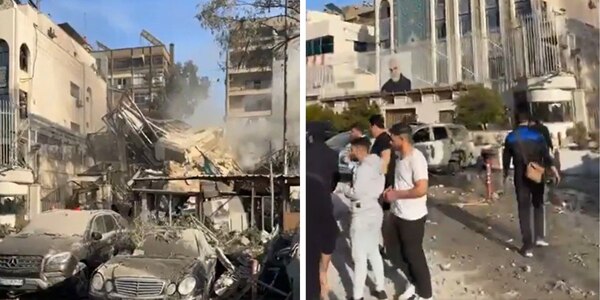On Monday, Damascus witnessed the destruction of the Iranian consulate in a suspected Israeli airstrike. The attack, resulting in casualties, was reported by Syrian authorities, with the death of Iranian military adviser Gen. Ali Reza Zahdi, a former leader of Iran’s elite Quds Force and the Revolutionary Guards Corps. While the Iranian government remained silent, Israeli officials declined to confirm the incident to foreign media outlets.
The airstrikes, condemned by Syria’s foreign minister as a “heinous terrorist attack,” targeted the Iranian consulate building, claiming the lives of several innocent individuals. Reports indicate at least five casualties alongside Zahdi. These developments unfold amidst heightened tensions in the region, exacerbated by Iran’s historical support for Hamas, which recently carried out terrorist attacks against Israel on October 7.

Suspected Israeli Airstrike Hits Iranian Consulate in Damascus, Escalating Regional Tensions (Credits: CBS News)
Israel’s alleged participation in attacks targeting Iran’s allies, such as recent operations against Syrian troops and Hezbollah fighters, highlights the intricate dynamics within the Middle East. The enduring conflict mirrors profound geopolitical rivalries and calculated maneuvers, as Israel’s security imperatives clash with Iran’s aspirations for regional influence amid Syria’s unstable environment.
As the situation evolves, the repercussions of such airstrikes extend beyond regional borders, impacting diplomatic relations and exacerbating existing tensions. The absence of official confirmation from both Israeli and Iranian authorities adds to the uncertainty surrounding the incident, leaving room for speculation and further analysis of its implications for regional stability.























